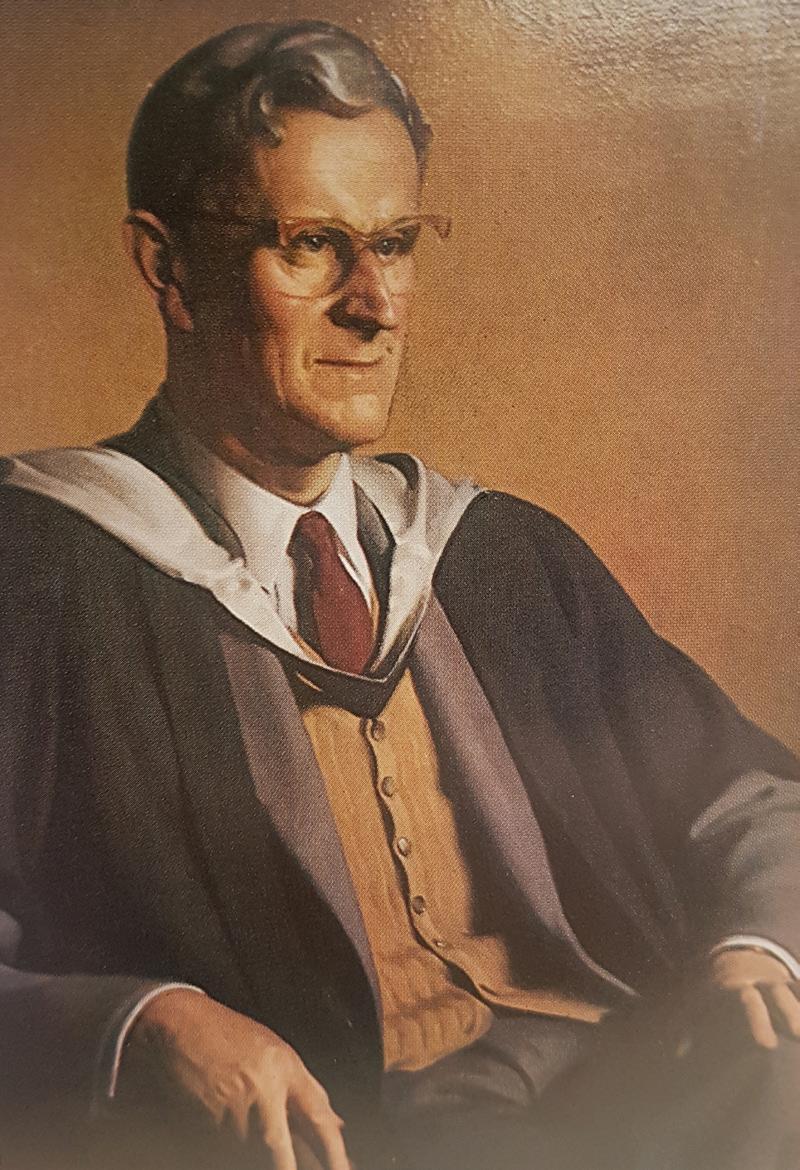
14 minute read
Resilient, nimble and numerous, Christopher King
Resilient, nimble and numerous Christopher King celebrates the enduring strength of Prep Schools
Let’s be clear from the start, prep schools are not dying. They are thriving, innovating and full of drive to be vibrant places of learning with a curriculum that is relevant for the future. Yes, of course, there are challenges which are well documented and mostly sector-wide in their impact. Is the typical prep school keeling over and accepting defeat? No, not at all, it is fighting hard and coming out ahead.
It is infuriating then to read yet another article from a selfpublicising senior school head, pontificating from their desk in a school which has a termly fee equivalent to a prep school’s annual charge and, in doing so, rubbishing the independent sector and undermining prep schools in the process. The staggering level of casually applied ignorance ends up biting the feeder schools the senior heads have relied on for many decades. It is beyond me why there is not more public respect for all the great preparatory work which goes on in the prep schools. In falling over themselves to praise the achievements of the state schools with whom they have partnership agreements, they forget to acknowledge the prep schools that send them so many well prepared pupils.
IAPS, an association of prep school heads, is also in rude health. All the top prep schools in the UK are in membership which, as I write, is at 627 schools, more than double that of HMC, and there are more pupils in our schools than any other
heads’ association. Typically, member schools in IAPS have just under 300 pupils and shape their business plans accordingly to allow sensible planning for the future.
The recent attack on the Common Entrance examination may, if I’m generous, have been simply a statement by a few schools of what really had been their approach to entrance testing for several years. It’s clearly a senior school’s prerogative to have any entrance procedure it may choose, but citing a wish to remove unnecessary examination pressure in order to improve a child’s wellbeing is frankly an effort in convincing themselves that what they are doing is right. The true pressure on young people comes from the stress of trying to meet the super-selective entrance expectations of some of the senior schools. Children feel the pressure when they are entered for multiple schools, each with their own entrance procedure, and from the army of tutors parents employ to push their child to the front of an ultra-competitive race. Before rubbishing Common Entrance, why not speak out against the unregulated, dubiously qualified tutors who offer a ‘shadow education’ and not against the professional, child-centred, supportive prep school.
The typical school in membership of IAPS is most likely to take children through to the end of Year 6, although there is a small but growing group that now offer GCSEs and take children on to Year 11. A goodly number are part of

larger educational `trusts’ and as such are party to offering an all-through education. There is also still a strong core of ‘traditional’ prep schools taking their pupils to the end of Year 8. There is much diversity in the character of the current prep school landscape, and the schools are clearly demonstrating that they are nimble and able to adapt to the changing market. The latest manifestation of this has been their response to the proposed increases in employer contributions to teachers’ pensions. In the immediate aftermath of the jaw dropping news of a 43% increase in those contributions there was a good deal of disbelief and some anger. Now, though, prep schools have moved on to find a way to budget for the future without heaping all the additional cost onto the parents via increased fees.
Prep schools have at the heart of their provision the allround development of the child. The well-being of the prep school pupil was also a priority in the best schools long before the term came into common usage within education. Strangely, the relatively small size of a prep school can lead some to look down on such establishments, missing the point that many stay small by design, because they are aware that this allows them to be sure that every child is known and nurtured as an individual. Music provision is very strong, which is just as well for the country as a whole, as budget cuts lead to a move away from the performing arts in state schools. As for sport, some of the senior

school heads would be well advised to get themselves informed about the IAPS sports competitions. 26,000 pupils took part in 27 different sports, and the swimming competition culminated in a gala at the former Olympic swimming venue in Stratford. The sailing regatta takes place in Weymouth, again at the former Olympic venue. The ambition for the sports programme is impressive and has no comparable senior school rival.
I am aware that the majority of senior school heads roll their eyes too at the ignorance of the few. Very positive relationships exist, of course, in most cases between the prep and senior school heads. It is equally true that the most measured senior school heads work sensibly to carry the traditional feeder prep school heads along with their changing admission policies. My criticism is simply aimed at those who value a sub editor’s headline along with mention of their name in the Saturday


editions of national newspapers above solid relationships with their traditional feeder schools.
The prep school world is part of the independent school sector which can find very few political allies who speak publicly in support of what we do. Surely this is the very time when the whole sector needs to hang together and be mutually supportive, with a message that we are part of the educational choice offered to parents, and that we all have a part to play in improving education provision in the UK. What we don’t need is the few to find fault where none exists, and to put their name first ahead of what is good for the sector.
Christopher King is the CEO of IAPS and a former Chairman of HMC
&THERE HERE
If you have news of topical interest, however brief, for ‘Here and There’, please email it to Tom Wheare at tom. wheare@gmail.com. Items should not exceed 150 words. Good colour photographs are also welcome.
Fashion forward
Flamboyance and flair took centre stage on Thursday 21 March when Heathfield staged its annual fashion show.
As Heathfield marks its 120th Anniversary, the array of creations gracing the catwalk celebrated work past and present, ranging from costume and wearable sculpture through to demi-couture and accessories. The garments have been designed and produced by students as part of their examination level work for GCSE and A-Level Art and Design, spread across Fine Art and Textiles.
This year students benefited from the professional input of fashion industry expert Stephen Lisseman, who approached the school to share his experiences of working in the sector alongside big names such as Karl Lagerfeld, Christopher Bailey, Gucci and Tom Ford. Stephen worked with GCSE and A level students on 1:1 tutorials aimed at consolidating design skills, and delivered a series of lectures on topics including: Theory of Design, New Aesthetics, Fabric Selection, Portfolio Preparation and Building a Collection.
Organised by Heathfield’s Head of Art & Design and Head of Humanities Faculty, Mrs Eve Feilen, the collaboration has been a huge success. Mrs Feilen commented, ‘Here at Heathfield we are passionate about supporting every girl in meeting her personal ambitions and goals and equipping her for her future workplace.’
Every year students are accepted at top choice universities, such as the London College of Fashion, Central St Martins, and Parsons New York, while notable alumni include model Amber Le Bon, fashion designer Tamara Mellon and the late British patron of fashion and art Isabella Blow. ‘As early as GCSE, the Art Department at Heathfield starts to prepare students for Art College and working in creative industries where they need to be able to articulate and rationalise their intentions. A key component of this is helping students to understand why they have made creative choices and to ‘tap in’ to the subconscious drives behind their art making. This approach really resonated with Stephen who discussed with the students the need to find one’s purpose and sense of direction in order to succeed in Fashion.’
Summing up his experience of working with Heathfield students Stephen said, ‘I hope to share knowledge and excitement that inspires creativity. I believe that one should explore new ideas, push boundaries, in order to make a difference and constantly challenge ourselves to be better.’


The legacy of Donald Hughes Sarah Ritchie celebrates a great Headmaster
Each year a sea of new faces arrives at school, ready to take their first steps into being part of our thriving community. Then, at the end of each year, we say goodbye to a number of individuals who are leaving us to enter the next chapter of their lives. This is the nature of life in a school, and whether we are welcoming or bidding farewell to pupils or staff, our population is constantly evolving. We like to think that everyone who passes through our school leaves their mark behind – their own unique part of our story. Every now and then, however, schools are lucky enough to have someone in their world who leaves a legacy for many years to come.
Donald Wynn Hughes was born in Southport in 1911. He was educated at The Perse School, Cambridge, and became a Scholar of Emmanuel College, gaining a First in English. He went on to become Senior English Master and a Housemaster at The Donald Hughes Leys School (1935-46) before moving to North Wales to become Headmaster of Rydal School in Colwyn Bay.
Donald Hughes quickly earned the respect of the Common Room, and of the boys in his care. His enthusiastic interest in all areas of school life helped to strengthen the community, and whether he is remembered pacing the touch line at rugby matches, enjoying a cricket match or teaching English in the classroom (he never taught fewer than 15 lessons a week), he is remembered with great affection and appreciation. During the 21 years he was Headmaster of Rydal School he touched the lives of a huge number of people. I have had the pleasure of talking to several Old Boys about him, and it is not uncommon for them, even now, to have a tear in their eye as they reminisce. They talk about a great teacher, with an ability to stimulate the mind and illuminate his subject for pupils of all abilities, of his concern for others, his keen sense of humour, his selflessness, his wisdom and his faith. He was respected and approachable, and held in high regard as both a Headmaster and a friend. We are told that in discussions with prefects, ‘he seemed to be seeking your advice but was really offering you his.’ This was a man who, during the formal opening ceremony for the newly built swimming pool in 1964, removed his jacket and shoes and jumped in the water. What better way to declare a swimming pool open than Head first!

He was a talented writer, and in my office I have a box full of his handwritten notes, sermons, speeches, and many poems and humorous verses, often jotted down on the back of a school compliment slip or whatever scrap of paper he had to hand when inspiration struck. The Batsman’s Bride, ‘a kind of respectful parody of the immortal Gilbert and Sullivan’, with music by Percy Heywood, was performed on the BBC in 1955 and again in 1980, and is still in the repertoire of amateur operatic societies. The great G&S commentator, Ian Bradley, has a high regard for the piece, not least because it marked his first appearance on stage, at prep school in 1961.
Donald Hughes was a gifted speaker and was much in demand at conferences. He spoke and wrote with authority on education and was greatly valued by fellow Headteachers. Sir Desmond Lee, Headmaster of Winchester and three times Chairman of HMC, wrote a clearly heartfelt foreword to Percy Heywood’s Memoir, Donald Hughes Headmaster. Despite the fact that their paths crossed largely at conferences and meetings, not always opportunities to get to know people well, ‘the sharp edge and pungency’ of Donald’s interventions were memorable. ‘He was not, he said, a good Committee man; but he was extremely good for those committees on which he served.’ ‘Above all he was a person. Personality is an elusive thing … but some indication of the value his colleagues placed on him is given by the invitation extended to him to allow his name to go forward for election as Chairman of the Conference for 1968.’ His reasons for refusing no doubt included some reservations about the nature of this post, but ‘his own doubts about his health and his Doctor’s categorical negative could not be gainsaid, and were sadly confirmed by his accident and death. It was characteristic that he described that accident by saying that, feeling unwell, he pulled into a lay-by and ‘forgot to stop’. His ability to laugh at all things, including himself, was an integral part of him, and of the affection in which he was held by others.’
On the last day of the Summer Term in 1967, Donald Hughes delivered a sermon to the school, closing with the words, ‘It is within the power of us all to realise our true selves, not by greed and self-seeking, but in the service of our God
and of our fellow men.’ His sudden death during the Summer holidays that followed was a shock to the Rydal family, as well as to the wider educational community. Tributes flooded in, not just from staff, pupils and parents, but also from fellow Headteachers and the Methodist Church. Many Old Boys can tell you the exact moment that they heard the news, such was the shock and impact that it had.
Donald Hughes was an incredible Head, and an incredible man, and he was a major figure in the local area. Outside school he became a Justice of the Peace, was Chairman of the Colwyn Bay Rotary Club, President of the North Wales Cricket Association and a member of the local Hospital Management Committee. He was also an active member of the Liberal party, then a significant force in North Wales. But his greatest influence was in the school.
Many Heads will be familiar with occasions where parents have entered their study to discuss their financial situation. Perhaps the family has fallen on hard times, businesses are in trouble, or there are health problems which have led to them struggling to pay the fees. It may be that they are at the point where they have to withdraw their child from the school. These were the days before the school had a bursary or hardship fund, but Donald Hughes would often find a way to ensure that the child could continue to be educated at Rydal. It was only after
Teachers his death that it became known that he had, in fact, been paying the fees for these boys out of his own pocket, enabling them to complete their studies at the school and to go on to achieve their ambitions. Put simply, Donald Hughes changed lives.
In 1970 a fund was set up in his name to continue the benevolent work that he started, and the school, now known as Rydal Penrhos School, has recently launched a fundraising campaign to raise £1 million for bursaries in recognition of him and to honour his vision that no child should miss out on the opportunity to have an outstanding education.
Donald Hughes left his mark in more ways than one. His legacy continues, not just within the walls of Rydal Penrhos, but in the lives of those who knew him, whether they were pupils, staff, members of the Methodist congregation or fellow Heads and educationalists. His legacy lives on in those who benefited so greatly from his quiet generosity, and now in those who are inspired to continue to support others in his name.
This is perhaps best summed up by a Governor, who wrote in 1967, ‘I do not grieve for Donald. The School will be his best memorial. He has lived for it and in many ways he will continue to live in it during the years to come.’ Sarah Ritchie is Alumni and Development Director at Rydal Penrhos School











